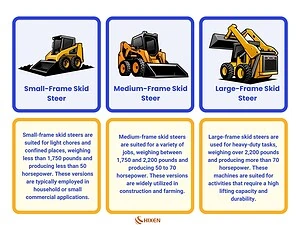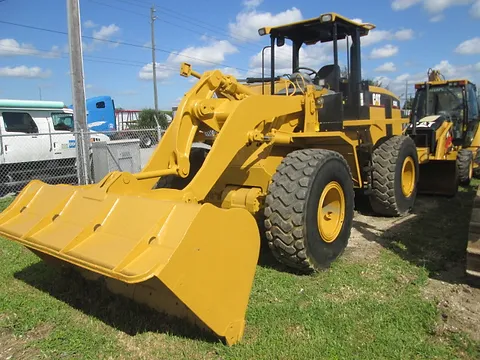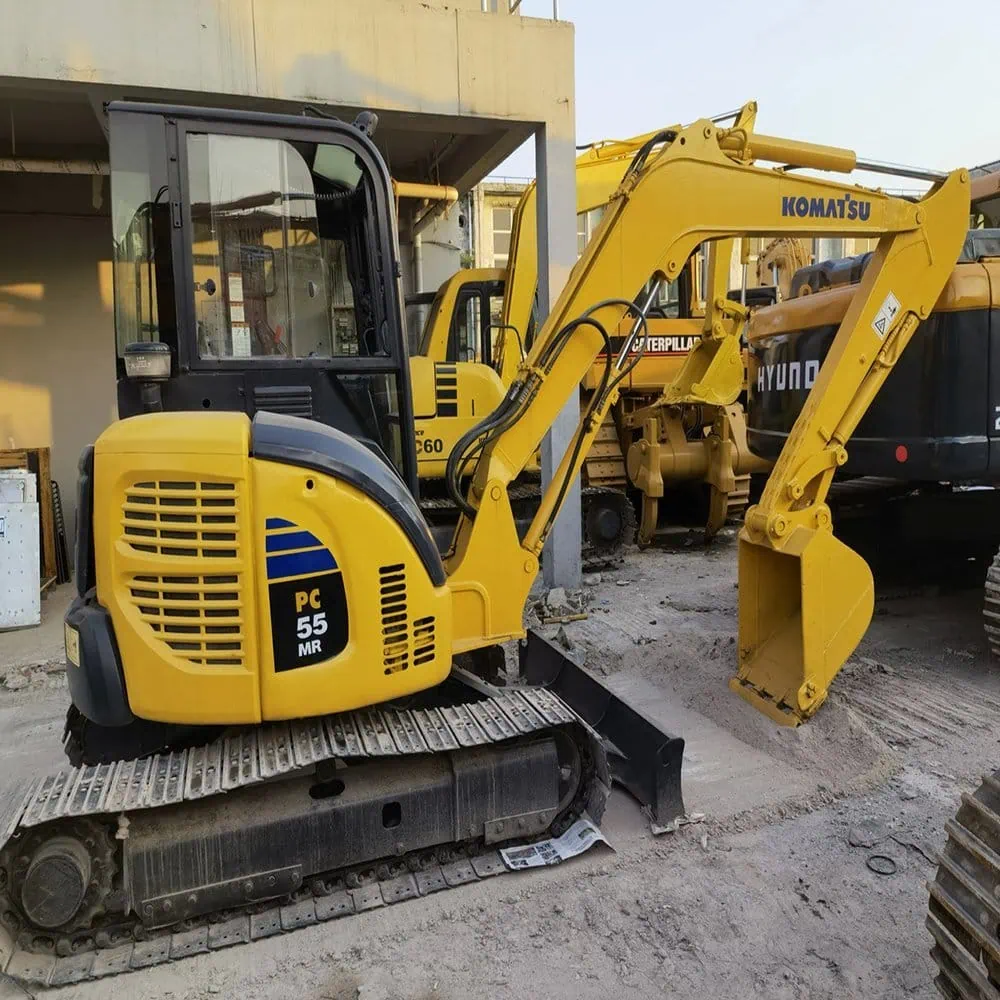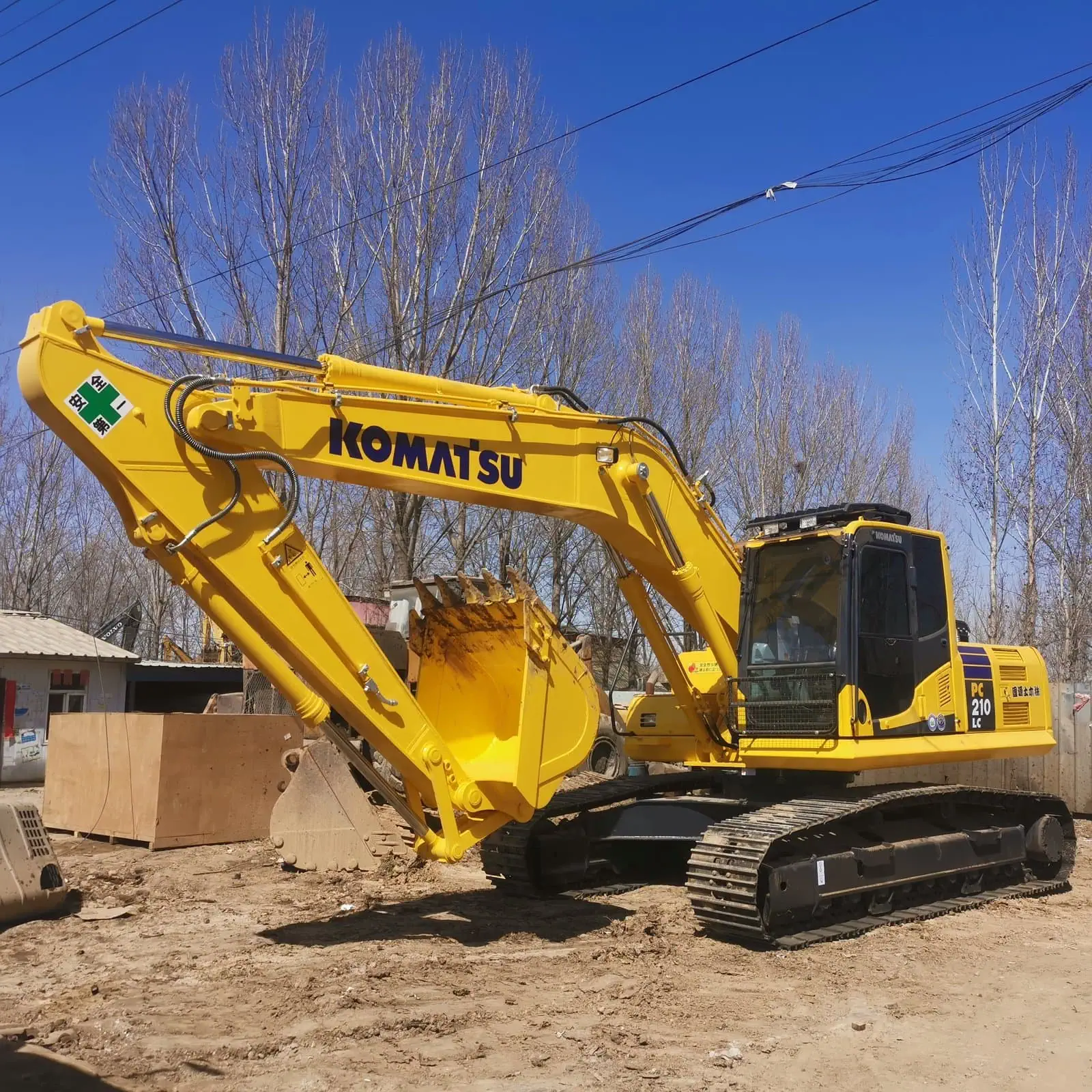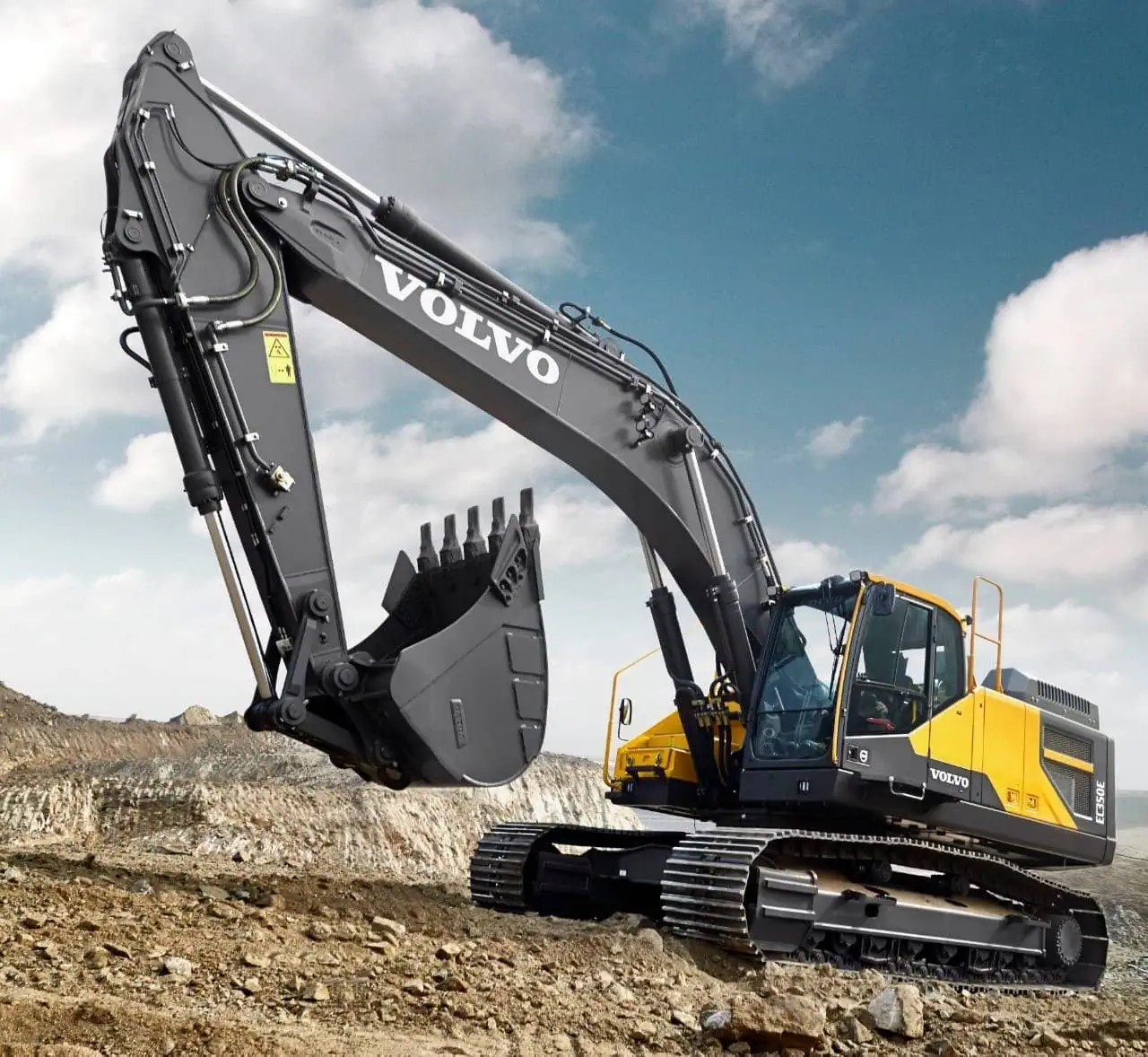Choosing the right 20-ton excavator for your project is essential to achieve the best results, save on operational costs, and maximize efficiency. There are many options available from different brands and
models. Understanding your needs and thoroughly evaluating the equipment will help you make the best choice for your construction or earthmoving project.
Choosing the right 20-ton excavator involves considering factors such as the machine’s performance, brand reputation, fuel efficiency, and suitability for the job at hand. Whether you’re working in urban construction, mining, or road development, this guide will help you assess critical features and select the best equipment. From evaluating fuel efficiency to ensuring comfort and safety features, we’ll cover all the key aspects of buying a 20-ton excavator for optimal productivity and cost-effectiveness.
Now, let’s get into the details. I’ll explain which specific features and considerations will help you make the best decision for your 20-ton excavator purchase.
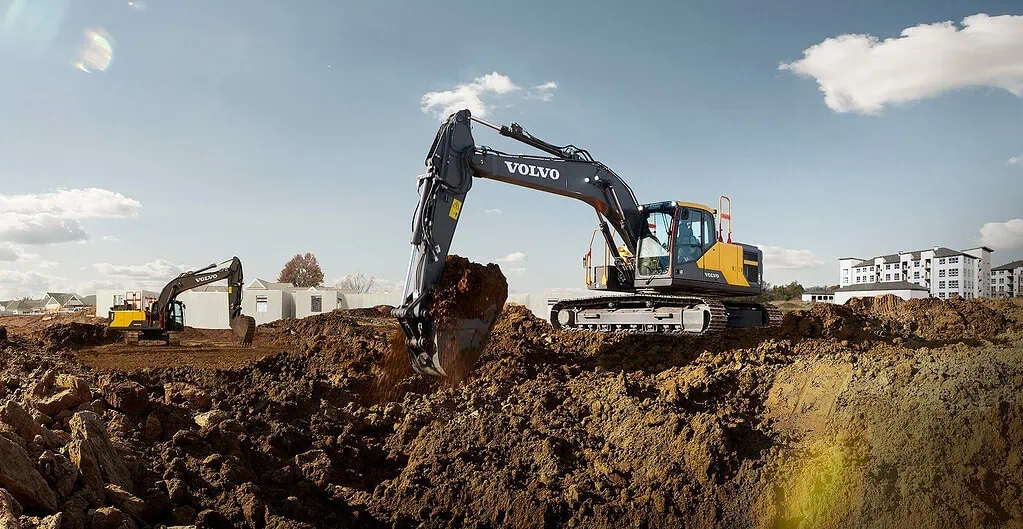
جدول المحتويات
تبديلWhat Are the Typical Applications of a 20-Ton Excavator?
A 20-ton excavator is the Swiss Army knife of construction. It can do just about everything across multiple industries.
Urban Construction:
In and around city environments, a 20-ton excavator can perform trenching, site prep, utility installation (sewer, electrical, water, etc.), and landscaping with exceptional results. These
machines work well in urban settings because they’re small enough to maneuver on city streets and residential jobsites yet powerful enough to get big work done.
Road Construction:
All road projects involve digging, grading, leveling and trenching. A 20-tonner can do everything I mentioned, with one minor exception I’ll cover in a bit. The weight of a 20-ton excavator and the digging depth these machines are capable of are good for tasks such as digging the ditches for drainage and putting in the foundations that highways, roads and bridges require.
Mining and Quarrying:
A 20-ton excavator is perfect for small- to medium-sized mining operations or quarrying. These machines excel at heavy lifting, loading material into trucks, digging up rock and overburden. Whether you’re working with a stone quarry or digging up softer earth, a 20-ton excavator is versatile and can handle many tasks on a mining site.
Demolition:
Precision and power are the keys to a successful demolition project. A 20-ton excavator is perfect for removing debris, selective demolition, and tearing down large structures. Many models come with the ability to attach items such as a hydraulic hammer that’s specifically designed to help you break up concrete or other structures made of metal.
Landscaping and Earthworks:
Landscaping jobs often require significant earthmoving and balancing the land. A 20-ton excavator can fit into a landscaping situation well because it’s got a combination of power and is still a little more mobile than the larger machines. Whether you’re digging big holes for trees, pulling out rocks, or shaping the land, a 20-ton excavator is flexible and able to move a good amount of material in a short time.
By understanding where a 20-ton excavator fits in the lineup for common applications, you can better assess if this machine is right for you. And, in each of these applications, you benefit from the 20-ton
excavator’s strong engine and overall capabilities.

How to Choose the Right 20-Ton Excavator Brand?
Choosing the right brand of 20-ton excavator is important. Your brand choice not only affects how the machine operates, but also the reliability, resale value, and overall satisfaction you’ll have with your
purchase. Here’s a deeper look at some of the top brands and what they offer that sets them apart from one another.
Caterpillar (CAT)
CAT is the name synonymous with “big iron.” Their equipment is known for being high quality and durable. The CAT 20-ton excavators like the CAT 320D come with advanced features like the Cat Grade Control (to help with grading more accurately) and Cat Productivity (CP) systems to help maximize your machine’s efficiency. CAT excavators have a reputation for being fuel-efficient, comfortable for the operator and inexpensive to maintain. These machines are built to handle tough environments, and they are an excellent long-term investment for your construction project.
كوماتسو
Komatsu is known for innovation, technology, and fuel efficiency. The كوماتسو PC200-8 and the PC210LC-8, for example, come with a unique hydraulic system built to save fuel while delivering strong performance. The PC200-8 even features a fuel-efficient, eco-friendly engine that meets global emission standards. Komatsu also adds systems like KOMTRAX, which is a remote machine monitoring system that helps you track performance, fuel consumption, work-mode levels, maintenance needs, and much more, even in multiple jobsites.
هيتاشي
Hitachi is known for having very strong hydraulic performance and is highly regarded for having great lifting power. Their ZX200-5G is highly regarded for its superior fuel efficiency, making it the ideal choice for operations with thin margins. These machines are also known for their precision control which is perfect for tasks like digging trenches, laying pipe, and moving material accurately. Hitachi optional features and extremely durable undercarriage ensure it can perform at a high level on even the most challenging terrains. Hitachi’s reputation for building high-quality, long-lasting machines makes this a good purchase for you to consider making.
هيونداي
Hyundai provides good value for the money without sacrificing quality. Their HX220L, for example, is a 20-ton excavator that provides excellent performance while being budget friendly. The 20-ton excavators they produce come with good power from the engine for fuel economy while still providing excellent digging force and hydraulic performance. These machines are built for heavy work, and they can easily handle any job you throw their way whether you’re moving material or digging trenches.
SANY and XCMG
Many people are looking for a more cost-effective option, and the Chinese brands like SANY and XCMG are becoming increasingly popular. These brands provide 20-ton excavators that perform well for most applications but are priced more economically. SANY’s SY215C, for example, is known for its strong lifting power and fuel efficiency. XCMG’s XE215C is known for its strong hydraulic performance and rugged design. Both are perfect for companies looking to save a few bucks to help reduce the overall cost of their equipment.
In the end, there are a lot of great options depending on your budget, what you need it to do, and what features you prioritize (fuel efficiency, hydraulic performance, after-sales support, etc.). If you need long-term reliability and cutting-edge technology, a CAT or Komatsu is going to be your best bet. But, if you’re looking for good performance at a great price, brands like Hyundai, SANY, and XCMG are offering a lot of value for the money.
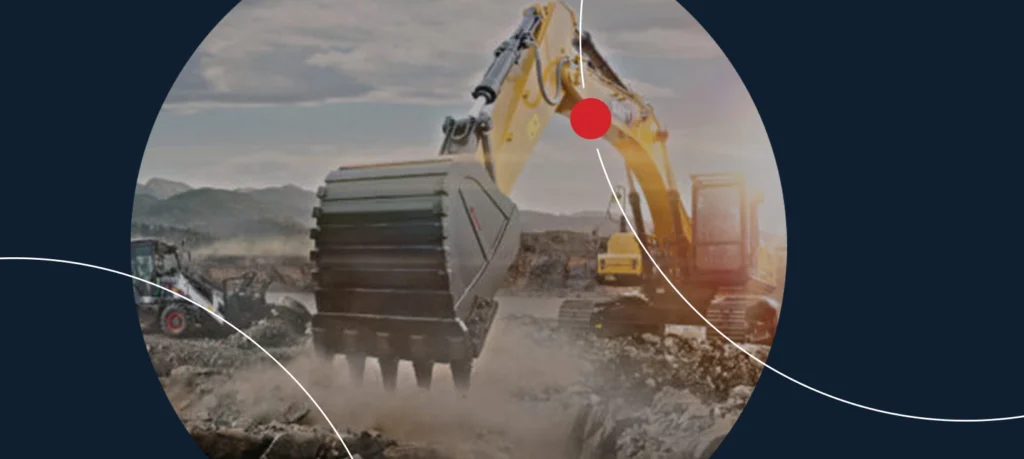
What Are the Key Performance Indicators to Look for in a 20-Ton Excavator?
To make sure you are choosing the best 20-ton excavator for your needs, you need to focus on several key performance indicators, or KPIs. These KPIs help you understand how the machine will perform, how efficient it will be, and if it’s right for the work you want to do.
Digging Force:
Digging force is one of the most important metrics when you’re selecting an excavator. An excavator’s digging force tells you how much material it can move at one time and how well it will work under tough digging conditions. The higher the digging force, the better the excavator is at jobs like rock removal, or trenching through hard, dense soil. Look for the digging force specifications for both the arm and bucket cylinders.
Hydraulic System:
The hydraulic system is a critical part of the excavator’s overall performance. The hydraulic system controls the digging, lifting and swinging capabilities of the machine. Excavators that have advanced
hydraulic systems, like a load-sensing system, adapt the machine’s performance based on the amount of work you’re doing, which helps you save fuel and reduce wear on the components. When considering the hydraulic system, look at the hydraulic flow rate as well as the digging force of the boom and the digging force of the arm.
Operating weight and stability:
The operating weight of the machine impacts the excavator’s stability and lifting capacity. A 20-ton excavator needs to be stable when you’re lifting or digging something heavy. More weight means more stability, but too much weight can make the machine less maneuverable especially in tight situations. You have to decide what’s more important for the specific tasks you’ll be performing on your job site.
Boom and arm reach:
The reach of the boom and the arm are critical factors to consider when you’re selecting an excavator. A longer boom and arm let you work in a wider range of trench depths or lift the material higher. If you’re going to work in deep trenches or need to lift material to a specific height, you need to make sure the 20-ton excavator you select has the necessary reach. Keep in mind, though, that a longer boom means less lifting capacity, so that’s a trade-off you have to consider when you’re selecting the right boom length.
Fuel efficiency:
With the price of fuel and the amount of time the machine will be running over the course of a project, the fuel costs are a significant portion of your operating budget. A fuel-efficient 20-ton excavator can
save you significant money over the life of the project, especially if it’s going to be running long hours every day. Look for machines with modern, fuel-efficient engines and advanced hydraulic systems that
help optimize fuel consumption based on the job you’re doing.
Maintenance and Serviceability:
Excavators are complex machines, so minimizing downtime with easy maintenance is essential. Machines with easily accessible service points, built-in diagnostic tools, and longer service intervals are less expensive and more convenient over time. Also, look into the quality and availability of spare parts for smooth operations throughout the life of the machine.
Operator Comfort and Ergonomics:
Operator comfort is directly related to how well they can run the machine. Excavators that come with a good, comfortable cab, adjustable seat, and easy-to-use controls reduce fatigue and raise productivity.
Features like air conditioning, noise reduction, and vibration damping contribute to the overall working environment.
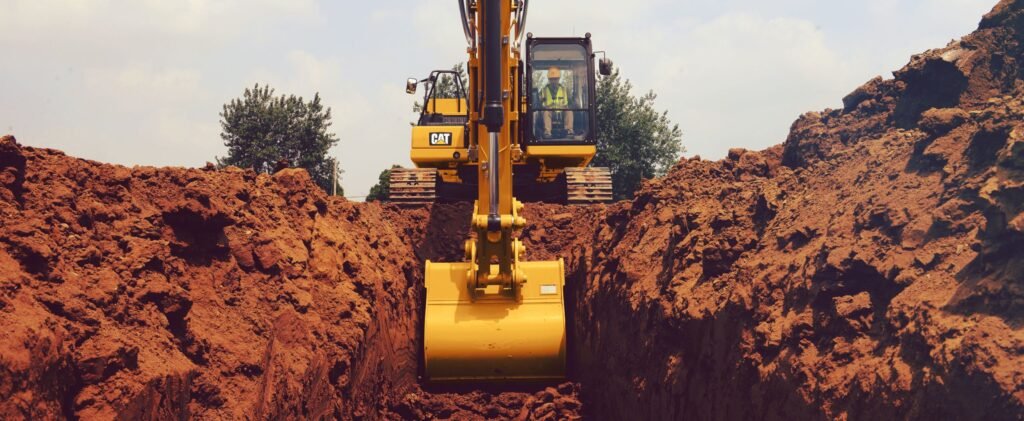
How to Assess Fuel Efficiency in a 20-Ton Excavator?
Fuel efficiency is a huge concern when you’re selecting a 20-ton excavator. Here’s how you can evaluate fuel efficiency:
engine technology:
Excavators with modern, fuel-efficient engines use less fuel to do the same amount of work. Check to see if the machine uses advanced engine technology such as electronic control units (ECUs) and common rail fuel systems to improve combustion efficiency and reduce fuel use.
Fuel management systems:
Some excavators come with fuel management systems that monitor fuel use and adjust operations based on fuel consumption. Features like idle reduction systems, automatic engine shutdowns, and optimized hydraulic flow can really help you save on your fuel bill.
Operating modes:
Many modern 20-ton excavators have different operating modes (like eco-mode, power mode, etc.) that let the operator decide the trade-off between power and fuel consumption on the fly. For example, eco-mode might reduce engine power and hydraulic flow to save fuel when you’re doing lighter work.
Compare fuel efficiency:
Look at the fuel efficiency data for the different models you’re considering to see which machine will save you the most money in the long run. Most manufacturers have this data for their machines in the brochures or available online. They usually specify average fuel consumption per hour based on various work scenarios.
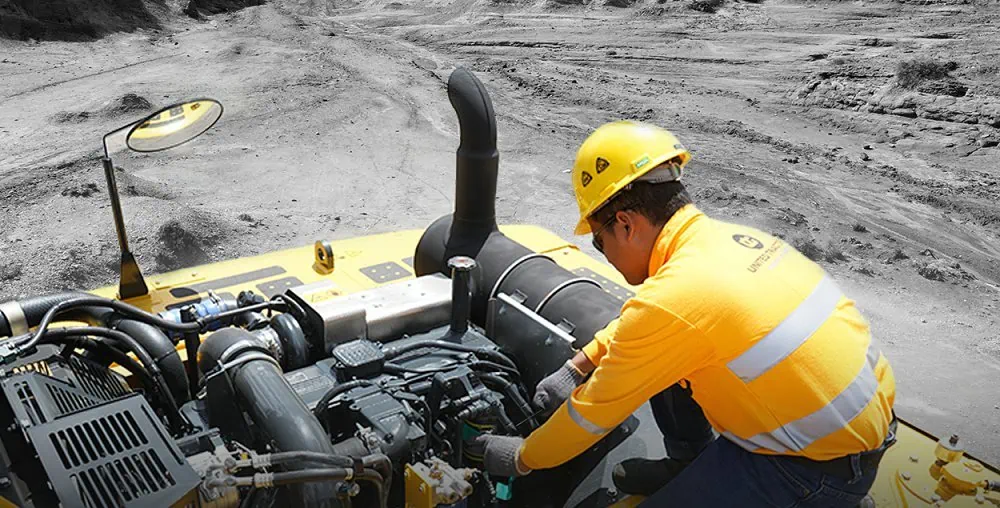
What Are the Key Factors to Consider for Operator Comfort in a 20-Ton Excavator?
Operator comfort is a big deal when it comes to keeping your operators happy and productive throughout long work days. Consider these factors when evaluating operator comfort:
Cabin design: Select a well-designed cabin with good visibility, plenty of room, and an ergonomic seat. A spacious cabin with easy-to-reach controls reduces operator fatigue.
Climate control: Depending on where your job site is located, you might need a cabin with air conditioning or heating to keep your operator
comfortable. This is especially essential if you are in extreme climates like the extreme heat of the desert or the bitter cold of the northern U.S. or Canada.
Noise and vibration reduction: Reducing noise and vibration in the cab is an important part of ensuring the operator’s comfort. Excessive noise and vibration can lead to operator fatigue and decreased productivity, so look for cabins with noise-damping materials and vibration-reducing systems.
Advanced controls: Place joysticks, knobs, and pedals in their ergonomically correct positions to reduce stress and strain on the operator’s body. Some excavators come with optional features like airsuspended seats, adjustable armrests, and joystick controls that give the operator a more personalized driving experience.
Should You Choose a New or Used 20-Ton Excavator?
Whenever you have to make a decision on buying something like a 20-ton excavator, it’s a tough call on whether to purchase new or go with a used machine. There are pros and cons to each.
New Excavators
New machines come with the newest technology, a warranty in case anything goes wrong, and are less likely to have problems. They typically have a higher resale value, and you have access to the most current fuel defficient engines and safety features on the market. But, the upfront cost is higher.
حفارات مستعملة
You can save some money by purchasing a used excavator. The disadvantage is that you have to be careful about the condition of the machine. You need to inspect things like the maintenance history, how
many hours are on the machine, and whether or not it’s ever been in an accident.
Buying used can be a great value if you’re buying from a trusted source. You’ll want to work with a reputable dealer who can offer warranties and guarantees about the condition of the machine.

How to Evaluate the Price and Value of a 20-Ton Excavator?
Prices for a 20-ton excavator can vary wildly based on brand, features, and whether you’re buying new or used. Here are some things to consider when looking at the price:
Initial cost vs. long-term value:
Don’t just think about the price on the day you buy the excavator. Think about the long-term value of the machine you’re buying. How efficient is the machine? How much maintenance does it need over its life? How fuel efficient is it? And, what kind of life expectancy does the machine have based on your operating environment?
Total cost of ownership:
Don’t just think about the purchase price when evaluating your options. You also need to think about the
maintenance costs, all the support costs, insurance and the cost to finance that machine. A more expensive machine on the front end could end up costing you less to operate, and producing a better return on your investment in the long run.
ملخص
Selecting the right 20-ton excavator for your needs comes down to understanding where and how you want to use that machine, and then evaluating the key performance indicators and what’s most important to you. Whether you’re looking at things like fuel efficiency, operator comfort, or after-sales support, you need to focus on the long-term value that machine is going to deliver for you, picking the right brand for
your specific needs, and ensuring that you’re picking a machine that’s right for your specific project. That way, they’ll make a well-informed decision and see better productivity, lower operating costs, and more
money on their bottom line. For more information or professional advice, feel free toاتصل بنا.



